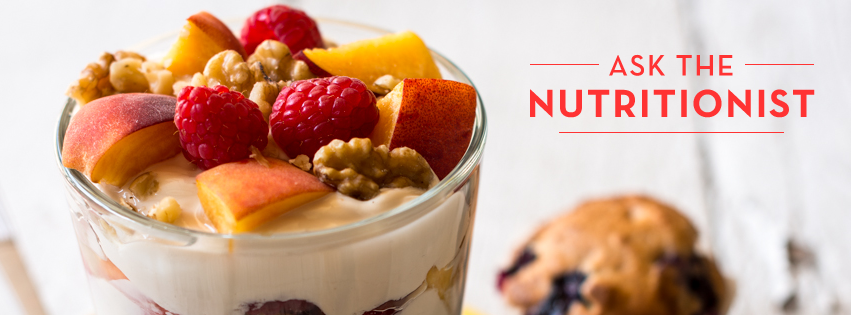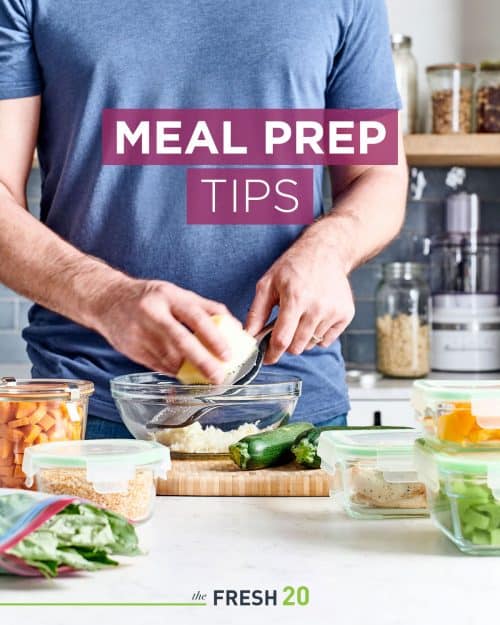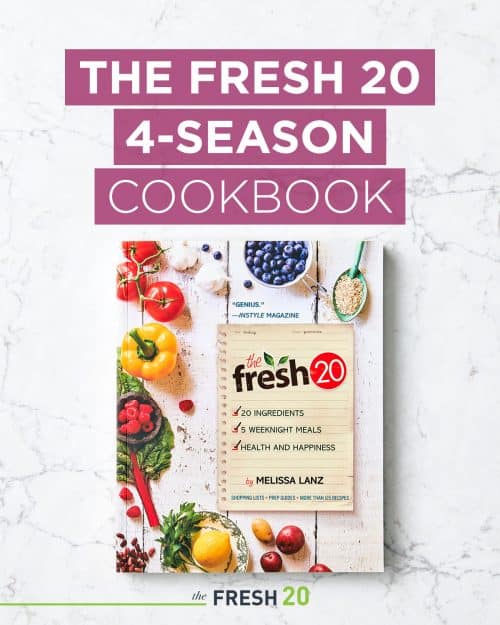 Fresh 20 Nutritionist, Allison Arnett, answers your questions about Nutrition
Fresh 20 Nutritionist, Allison Arnett, answers your questions about Nutrition
Nutrition Facts
1. Are there certain foods you should never eat together, due to different digestion times?
Studies actually continue to reveal that combining foods from different food groups is more valuable than eating them separately. Our digestive system is able to handle a variety of foods at a time and the combination of carbohydrates containing in-tact fiber, protein and a small amount of fat is actually shown to improve energy and satiety and thus aid in maintaining a healthy weight.
While proponents of specific food combining restrictions may use scientific language, there is no evidence to support the concept of separating foods to aid in digestion.
2. My eight and nine-year-olds play competitive sports–can you recommend some healthy after-workout snacks for them?
The most immediate consideration after a workout is hydration so make sure your children have ample water before, during and after exercise. Within 30 minutes of finishing their workout, I recommend a snack that primarily replaces carbohydrate stores and includes some protein for muscle and tissue repair. The size of this snack depends on the time until the next meal. If they will have dinner within the hour, a smaller snack will suffice but if they have to wait awhile before eating another meal, your very athletic children might need a larger serving. Try to avoid the idea of “rewarding” a workout with sweets and instead focus on these healthy options:
- Fruit with plain or vanilla yogurt or plain low fat or fat free milk. Chocolate milk is often mentioned for replenishing due to its higher sugar content, but I prefer plain milk with a serving of fruit.
- Fruit with cheese or nut butter.
- Unsweetened trail mix, which includes nuts or seeds (be aware of any allergies with nuts if you are providing for other children as well) and dried fruit. Avoid trail mix with added chocolate or candy.
- Graham crackers/whole wheat toast/whole wheat crackers with natural nut or seed butter
- Homemade fruit and yogurt smoothie
- Low sugar store bought or homemade granola bar. Good options are around 150 calories with less than 1gm saturated fat, at least 5gm protein, 5gm or less of added sugar and at least 3gm dietary fiber.
- Whole wheat crackers with hummus and a container of unsweetened applesauce
3. Is it safe to include soy in a vegetarian diet as a source of protein?
Health concerns about soy generally stem from soy containing isoflavones or plant estrogens, which are a weak class of phytoestrogens. Research has shown that mimicking effect of phytoestrogens is actually quite weak. While estrogen therapy itself has been studied for contributing to breast cancer in older women, phytoestrogens do not have the same effect. In fact, some studies have even shown improved prognosis in women who eat soy products. Including a serving of soy daily is considered good for cardiovascular health, especially if it replaces a higher saturated fat animal protein. The most recent guidelines from the American Cancer Society support eating traditional soy foods such as tofu and edamame. According to the ACS, these may actually lower the risk of cancers of the breast, prostate and endometrium.
Soy is a great source of both protein and dietary fiber. However, if you see soy as soy protein isolate included in a processed food such as a veggie burger, energy bar, nutritional supplement or even some commercially sold soy milk, it is generally best to avoid since this is a highly processed soy food, which is generally stripped of any nutritional benefit that a serving of whole soy foods contain.
Since soy is a GMO food in the United States, choosing organic soy products is definitely a healthy consideration. While it is safe to have a serving of whole soy foods daily, I do not recommend vegetarians and vegans relying heavily on soy for protein but rather create a balance using soy, legumes, nuts and seeds, quinoa and vegetables.

If you have a nutrition question you’d like Allison to answer in a future post, please submit it in the ‘comments’ section below.











